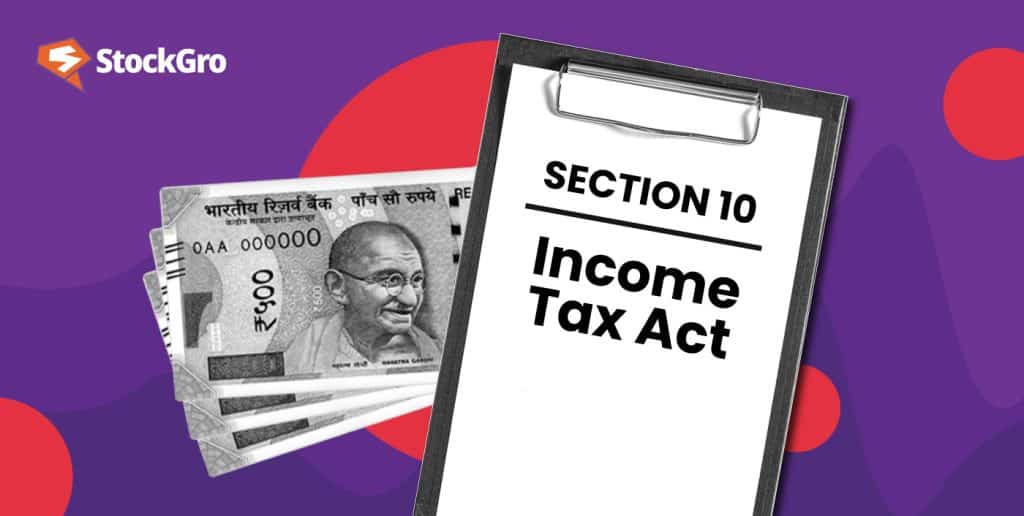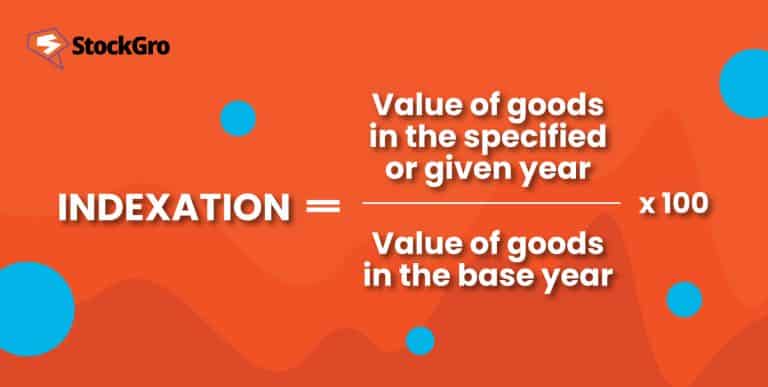
Tax implications influence the balance between wealth creation and obligation. Thus, it is crucial for both the parties – Taxpayers and government. Direct taxes in India are always in the headlines as they claim a significant share of an individual’s income. People seek ways to reduce their tax obligations. Salaried individuals also seek to plan their incomes and expenses, which can be salvaged from total tax payments.
However, few people know that the Income Tax Act itself has some provisions offered to salaried individuals that can reduce their tax liability. These are allowances with a crucial share in an individual’s income (explained further in detail).
Section 10 of the Income Tax Act, 1961, prescribes a set of incomes that are not taxable. Individuals should know this list for better income planning. Let’s explore some important clauses of this section.
Check this out! Gross Salary: Key Components and Net Salary Calculation
Section 10 (5) of the Income Tax Act
It exempts the allowance received for any travel concession from the employer. This travel concession can be for the family or the assessee himself/herself. Moreover, it can be availed from the existing or former employer as per the condition of the number of journeys and amount. Provided, this allowance should not exceed the expenses incurred in the travel.
Section 10 (10) of the Income Tax Act
It deals with conditional exemption of income earned after the span of service.
Section 10 (10A) of the Income Tax Act
When an employee retires, he/she is awarded certain compensation as a pension. For the retiring from a government institution, this pension accumulated over years of service is exempted from the calculation of total income.
Government institution refers to one established by a central, state or provincial act.
Section 10 (10AA) of the Income Tax Act
A salaried person has a right to receive some minimum paid leave. Some organisations even allow the carry forward of such unused leaves. This balance of unused leaves, is later compensated by the employer. It is known as the encashment of leaves. Exemption received under section 10 10AA of the Income Tax Act, 1961, at leave encashment, is as follows:
- Government employee – 100% income
- Other employees – the lowest amount of the following options
- Actual leave encashment received
- 10-month salary (Average last ten months basis)
- ₹25 lakhs
- Cash equivalent to unused leaves (Average last ten months basis)
Section 10 (10D) of the Income Tax Act
It deals with any income earned on life insurance by the assessee. Conditions to avail of this exemption are as follows:
- The premium for any fiscal year should be less than 20% of the total sum insured (policy between 1/1/2003 & 31/3/2012)
- For policy after 1/1/2012, this limit was reduced to 10%.
- Insured is severely ill or disabled. Premium should not exceed 15% of the sum insured. Disease should be in the list under section 80DDB and disability under section 80U.
Must read: Perquisites in income tax
Section 10 (11) of the Income Tax Act
It exempts the interest earned (at the time of retirement or resignation) from a statutory provident fund (meaning, fund established by the PF ACT) or that by the central government. However, employees whose contribution exceeds ₹250,000/- in the previous year cannot benefit from this exemption. The limit is ₹500,000/- for contributions not including that by the employer.
Section 10 (12) of the Income Tax Act
It exempts the interest earned at the time of retirement or resignation, from any fund other than that mentioned in Section 10 (11). However, employees whose contribution exceeds ₹250,000/- in the previous year cannot benefit from this exemption. The limit is ₹500,000/- for contributions not including that by the employer.
Section 10 (13A) of the Income Tax Act
Salaried individuals received house rent allowance from their employer, owing to certain conditions. Under this section, such allowance is exempt from income calculation.
However, the following people cannot benefit from this exemption:
- One owning the residential property or
- One who is not incurring any expenses, like rent, towards such property.
Section 10 (14) of the Income Tax Act
It exempts the allowance received on expenses incurred due to his/her employer’s business. It has mainly two sub-clauses as follows:
Section 10 (14)(i) of the Income Tax Act
It includes expenses incurred during the performance of office duties. For example: If an employee subscribes to a paid editorial for his/her job requirement. This allowance paid by the employer can be exempt.
Section 10 (14)(ii) of the Income Tax Act
It includes expenses incurred for an employee or standard of living while performing office duties. For example, if an employee incurs food expenses during a business tour. This allowance paid by the employer is exempt.
Section 10 (23C) of the Income Tax Act
It exempts the income received by educational institutions or trusts made for some specific purpose. It has various sub-clauses explaining the types, characteristics and other specifications, to classify it under such an institution or trust.
Some examples of such institutions are – the Prime Minister (PM) National Relief Fund, the PM fund for the promotion of folk art, Swacch Bharat Kosh, the Clean Ganga fund, etc.
Section 10 (26) of the Income Tax Act
It provides tax exemption on income received as dividends, interest or income from the state. This section is specifically for an individual from a ‘scheduled tribe’ living in the following states:
- Arunachal Pradesh
- Mizoram
- Nagaland
- Manipur
- Tripura
- Ladakh
Bottomline
The list of exemptions under section 10 of the Income Tax Act, 1961, continues. However, understanding these exemptions is crucial for an employee to plan and incur accordingly. Moreover, it will help to reduce tax implications while calculating total taxable income.
Also, read this: How to do tax planning for high-income earners?
FAQs
Q1. What is a Section 10 exemption in income tax?
This section allows certain incomes to be exempt while calculating taxable income. It covers various types including travel concession, leave encashment, provident fund incomes, research allowance, pension, gratuity and many more. Salaried individuals should be aware of this section for better tax planning.
Q2. What is Form 10 of income tax?
It is a form that can be used by some religious or charitable organisations. It allows tax exemption on their income. These organisations must be categorised under any sub-clause or condition of Section 10 (23C) of the Income Tax Act, 1961. Moreover, the exemption on the income is full or partial. The organisations should fill the Form 10, and submit it to the assessing officer.
Q3. What are section 10 (11) and section 10 (12) benefits?
Both the section clauses deal with income from provident funds. The exemption can be obtained if the contribution for the immediately preceding year is less than ₹2.5 lakhs. This limit is ₹5 lakhs, if the contribution is made by only the employee. Section 10(11) refers to statutory PFs or those made by the central government. Section 10(12) refers to other PFs.
Q4. What are the criteria for leave encashment?
Salaried employees can exempt the leave encashment received at the time of retirement. For a government employee, exemption is 100% income. For others the least amount of the following will be exemption:
- Actual leave encashment received
- 10-month salary (average last ten months)
- Cash payment is based on the average of ten months, multiplied by unused leaves.
- ₹25 lakhs

